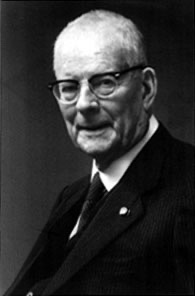 This post continues my series on W. Edwards Deming and the impact his principles and philosophies have had on my life. Previous posts can be read HERE and HERE and HERE.
This post continues my series on W. Edwards Deming and the impact his principles and philosophies have had on my life. Previous posts can be read HERE and HERE and HERE.
The previous post focused on the prevailing Whack-a-Mole (WhaM) management paradigm that confronted Dr. Deming when he was contracted to achieve quality improvements in the automotive industry. It is my belief that Ford management was naive about the depth of Deming’s principles and philosophies and the dramatic changes their adoption would require.
Consistent with WhaM, the possibility of solution/survival made choosing Deming to lead them out of desperate straits an uncontested choice. That decision ultimately proved to be bittersweet. As documented earlier, the result of Deming’s influence brought dramatic returns in improved quality, sales and profitability. What was not so obvious was the equally, if not greater , impact on the culture of Ford Motor Company. Deming’s theory of Profound Knowledge proved to be a persistent challenge to Ford’s management and established a trajectory that would transform the company’s future.
Profound Knowledge
Deming’s theory of profound knowledge is a management philosophy grounded in systems theory. It is based on the principle that each organization is composed of a system of interrelated processes and people which make up system’s components.
The preceding is more descriptive than a definition. While it is accurate it does not do justice to the concept of Profound Knowledge Dr. Deming understood and taught.
The radical character and nature of Deming’s Profound Knowledge becomes clearer in reading the Merriam – Webster Dictionary definition of profound:
- having intellectual depth and insight.
- difficult to fathom or understand
- extending far below the surface
- coming from, reaching to, or situated at a depth
- characterized by intensity of feeling or quality
- all encompassing : COMPLETE
The idea of profound knowledge being a theory also skews understanding to some degree. To some, theory implies speculation. The following definition of theory clarifies its application to profound knowledge.
Theory: a supposition or a system of ideas intended to explain something, especially one based on general principles independent of the thing to be explained.
With that introduction, I will attempt to summarize the ways in which Profound Knowledge (PK) has influenced my life. It is necessary to begin with a fundamental premise Deming held:
PK generally comes from outside the system and is only useful if it is invited and received with an eagerness to learn and improve. A system cannot understand itself without help from outside the system, because prior experiences will bias objectivity, preventing critical analysis of the organization. Critical self-examination is difficult without impartial analysis from outside the organization. Also, insiders can rarely serve as hostile critics who speak frankly without fear of reprisals.
Without acceptance of that premise, Deming was vulnerable to the inherent mechanisms of organizations to protect themselves. Like organizations, individuals are adverse to self-examination and even though they may submit to self-examination will resist and rationalize negative conclusions. That remains a challenge for me. Humility and fallibility are rare commodities.
Deming’s Theory of Profound Knowledge consists of four parts: Appreciation for a system, Knowledge about variation, Theory of knowledge, Knowledge of psychology
A more comprehensive examination PF can be found in “There is a Relationship Between Systems Thinking and W. Edwards Deming’s Theory of Profound Knowledge by Dr. Barbara Berry” as well as other available sources. I would encourage readers to seek those out. For the purposes of this post, I will share some personal take-always that generally relate to the the four parts above.
Appreciation of a System:
Organizations are a system. Each organization is composed of a system of interrelated processes and people. Action in one part of the system will have effects in the other parts, that is, “unintended consequences.” By learning about systems we can better avoid these unintended consequences and optimize the whole system.
For a WhaM manager, facing the reality that their business / organization is a system rather than a conglomeration of seemingly unrelated problems, is a life changing proposition. It soon becomes painfully apparent that the skills and tools they have employed to be successful in managing and controlling, are inadequate, or worse, useless. (The irony being that WhaM was successful in whacking whatever mole appeared, not in achieving quality.) When the definition of success shifts from whacking a mole and becomes not just improving quality, but leading continuous quality improvement, a new paradigm has emerged.
This is true of any human organization. The personal impact beyond Ford Motor Company was felt most acutely in my family and church. In each case, I came to understand it was about leading, not about managing.
Knowledge of variation
Appreciation of a system depends on understanding the interconnectedness and interdependence. Interconnectedness must be clearly defined and documented for successful flow or continuous improvement of the process.
No two things are exactly alike, not people, not processes. Variation is a natural, inevitable part of life. This principle of variation is irrefutable but WhaM employs solutions which ignore that principle. Essentially, a one-size-fits-all approach. Expediency triumphs and avoids the hard work of leading while satisfying misguided objectives. Perhaps a alternative definition of insanity could be: Expecting to eliminate variation.
Once there is an appreciation of systems, it should not take much imagination to understand how counter-productive such a goal can be to organizations.
Theory of Knowledge
The theory of knowledge implies that system improvement depends on continuous study of the organization. Improvement is learning and developing new knowledge about the system.
Deming said. “In God we trust God, all others bring data”. As humans we are subject to self-deception regarding how much we know and whether it is accurate or true. A general human tendency toward infallibility and arrogance becomes exponentially greater when given responsibility for leadership. In my experience, many, if not most decisions by leadership are made without reliable understanding of the system and/or good data. Accepting the principle of variation, study of the organization will be necessarily continuous. The quality of knowledge about systems is dependent on reliable data. Deming’s primary tool for obtaining reliable data is Statistical Process Control (SPC). SPC is worthy of its own conversation and beyond the scope of this post.
Sources of data, in the absence of a disciplined approach like SPC, often relied upon are opinion, past experience, anecdote, tradition, SWAG, et al. Increasingly prevalent is reliance on social media.
The personal impact of Deming’s theory of knowledge and SPC have resulted in an awareness of the necessity of reliable data to make decisions and an attendant caution with regard to the reliability of data presented. Where practicable, I insistent on verification of data.
Knowledge of Psychology
WhaM requires a management style of command and control, creativity and cooperative skills are not encouraged. WhaM management theory holds that everyone learns alike and that motivation is extrinsic and influenced by external forces of reward or punishment and fear. It is at those intersections that Deming’s principles and philosophies encountered their stiffest opposition.
Deming believed that people are born with intrinsic motivation, self-esteem, desire to learn, finding creativity and joy in accomplishment, and a need for freedom and belonging.
As implementation proceeded it became clear that WhaM management, including myself, did not accept Deming’s premises about people to be true. Ironically, we believed they were true of ourselves. Although many of Deming’s principles could be implemented and produce benefits, without acceptance and internalization of his philosophies regarding human behavior, organizations will not achieve their full potential. If I could reduce that philosophy to one simple phrase, it would be “Treat others as you want to be treated.” It was on that point that Deming’s relationship with Ford Motor Company took a left turn and eventually ended. Like most organizations, and for that matter, most people, the requirement to subject oneself to self-examination and see ourselves as we truly are and make changes is a bridge we are not willing to cross. For those who are willing to make that journey, the rewards are worthwhile.
“The individual, transformed, will perceive new meaning to his life, to events, to numbers, to interactions between people. Once the individual understands the system of profound knowledge, he will apply its principles in every kind of relationship with other people. He will have a basis for judgment of his own decisions and for transformation of the organizations that he belongs to.”
If you have endured to this point, thank you. This post completes my series on Dr. Deming.
